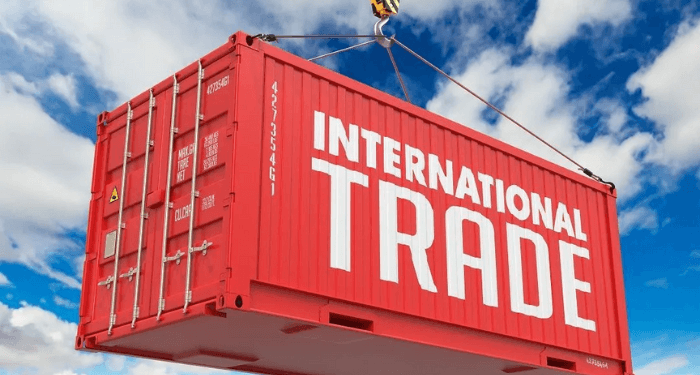Nigeria has marked its highest trade surplus in five years and three months during the third quarter of this year, attributing the surge to the devaluation of the national currency, according to a BusinessDay analysis of the latest foreign trade statistics report from the National Bureau of Statistics (NBS).
The report reveals that Africa’s largest economy achieved a positive trade balance of N1.89 trillion for the fourth consecutive quarter in Q3, reflecting a remarkable 166.2 percent increase from N708.9 billion in the preceding quarter. This positive trajectory also represents a substantial improvement from a year-on-year trade deficit of N409.4 billion.
A trade surplus occurs when a country’s exports surpass its imports, and Nigeria’s total trade escalated to N18.8 trillion in Q3 from N12.2 trillion in the previous quarter, marking a notable 52.8 percent year-on-year growth from N12.3 trillion.
The NBS report states, “Nigeria’s total merchandise trade in Q3 rose significantly due to the increase in exports and imports, resulting in a positive trade balance.”
Economists attribute the surge in trade surplus to the devaluation effect, emphasizing that the country benefits from more naira from export proceeds per dollar in the wake of a weaker official exchange rate.
Crude oil exports experienced a substantial increase, despite a decline in non-oil exports, according to Israel Odubola, a Lagos-based research economist. The depreciation of the naira against major currencies, including the dollar, has influenced this positive trade balance.
The Central Bank of Nigeria’s decision in June to merge all segments of the foreign exchange market into the Investors and Exporters window, coupled with the reintroduction of the willing buyer, willing seller model, contributed to the ongoing depreciation of the naira.
As of Friday, the official exchange rate rose from N463.38/$ to N927.19/$, while at the parallel market, the naira depreciated to N1,164/$ from 762/$.
Analysts suggest that the high cost of sourcing foreign exchange played a role in pushing Nigeria’s inflation rate to an 18-year high of 27.33 percent in October.
Abiodun Keripe, Managing Director at Afrinvest Consulting, highlighted that the weaker naira, stable crude oil prices, and a gradual recovery in oil production contributed to the trade surplus. Global Brent oil prices averaged at $93.7 per barrel in September, up from $82.5 per barrel in January.
The breakdown of the NBS report reveals that the value of total exports in Q3 stood at N10.3 trillion, representing a substantial increase of 60.8 percent from Q2 (N6.44 trillion) and a remarkable 74.4 percent from Q3 2022 (N5.93 trillion).
Total imports in Q3 were valued at N8.46 trillion, showcasing an increase of 47.7 percent compared to Q2 (N5.73 trillion) and a 33.3 percent rise against the corresponding quarter of 2022 (N6.34 trillion).
The NBS report further breaks down the traded products, indicating that the largest export value in Q3 remained ‘petroleum oils and oils obtained from bituminous minerals, crude,’ accounting for 82.5 percent.
In analyzing trading partners, Spain recorded the highest exports from Nigeria, followed by India, the Netherlands, Indonesia, and France.
This notable achievement in trade surplus positions Nigeria favorably in the global economic landscape and underscores the impact of currency dynamics on international trade relationships. Investors and economists will closely monitor how these developments shape the country’s economic outlook in the coming quarters.









